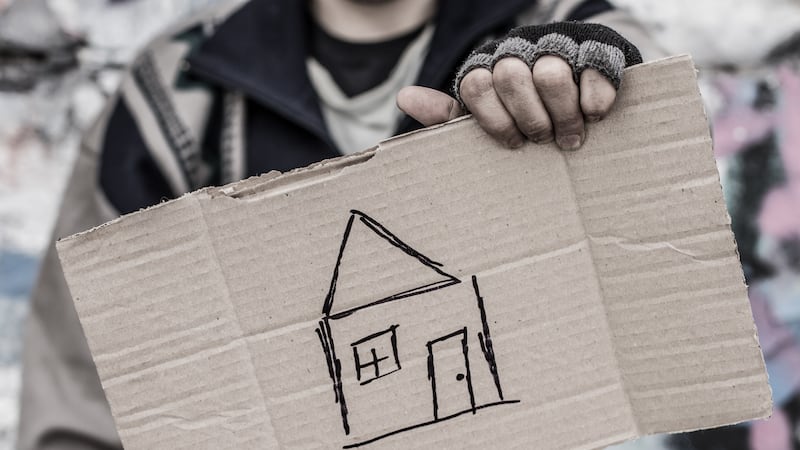More than 86,000 people in Northern Ireland are on a waiting list for social housing, homelessness figures have increased by 122 per cent in a decade, and over 4,500 children are living in temporary accommodation.
For those throwing stones at the housing crisis in the Republic, the north fares little better – two decades of failures in the housing sector has plummeted the region into its own housing crisis.
Since the mid-1990s, social housing in Northern Ireland has been overseen by housing associations, during which time waiting lists exponentially grew. A total of 45,615 households were on the social housing waiting list as of September 2023. Applicants are prioritised by a points system, unfit for purpose.
As the crisis worsens, the Housing Executive, the public housing body, has started building for the first time in a quarter of a century. Stormont currently aims to build 1,950 social homes a year – a target they will undoubtably miss.
The Construction Employers Federation (CEF) in Northern Ireland has claimed that 19,000 would-be new homes – and billions of pounds in investment – are on hold due to wastewater capacity limits, while NI Water, the public body which maintains water supply, contends that it lacks the funding to support the infrastructure necessary for new builds. The impasse continues.

The approach to housing is disorganised, dysfunctional, and plagued by bureaucracy and a lack of cross-departmental cooperation.
One in 34 people in Northern Ireland are officially classified as homeless. This figure is unlikely to account for many of those experiencing hidden homelessness – couch surfing or staying with friends but having no home of your own.
Meanwhile, according to the 2021 census, there are 52,300 vacant homes in Northern Ireland.
We have a growing generation who cannot reach the first rung on the ladder, and those who do manage to secure a mortgage face mounting rates, mortgage hikes, and the cost of home maintenance. Many end up trapped in private rentals for years, if not decades, with poor regulation, poor quality and a lack of enforceable rights. How many of us have rented a house riddled with mould, or poor ventilation? Poor quality housing poses a serious risk to health.
The Private Tenancies Act (Northern Ireland) 2022 was implemented to strengthen protections for private renters, introducing limits on deposits, changes to notice periods, and a requirement to provide tenants with information on their tenancy. The Act also empowered councils to issue fixed penalty fines on landlords who exploit their tenants. But the Act does not go far enough; too many people are paying too much for inadequate housing, and many either won’t know their rights, or won’t feel empowered to use them.
According to the Office for National Statistics (ONS), private rental prices in Northern Ireland have increased by 10.1 per cent in the 12 months to January 2024. In Belfast the average rent is £952 a month.

The number of people presenting to the Housing Executive for accommodation due to financial hardship has increased by 167.4% on the equivalent period in 2022, according to figures from the Department for Communities.
Out of the four regions of the UK, Northern Ireland has the lowest wages. Paramilitary intimidation also remains a cited reason for presenting to the Housing Executive – 26 years after the Good Friday Agreement.
Northern Ireland is not thriving; many are barely surviving. The social security net is broken
The communities minister has said we need to be radical when it comes to housing. Being radical involves an overhaul of the entire system and a new cross-departmental approach that urgently builds affordable homes to meet the needs of society including adaptable homes for life, passive homes, single occupancy homes, family homes, homes with green spaces and accessible public services.
It is not only the south experiencing a housing crisis. Rather than capitalise upon it as an excuse not to engage with the conversations on a united Ireland, let’s be realistic about our own problems. Northern Ireland is not thriving; many are barely surviving. The social security net is broken.
Housing has to be made a priority for the Northern Ireland Executive with tangible, deliverable outputs in the Programme for Government – but then, that would require a Programme for Government.
Once again, a five-year Assembly term is being squeezed into 3 years. How much longer will we have to wait for the real work of government to begin?



